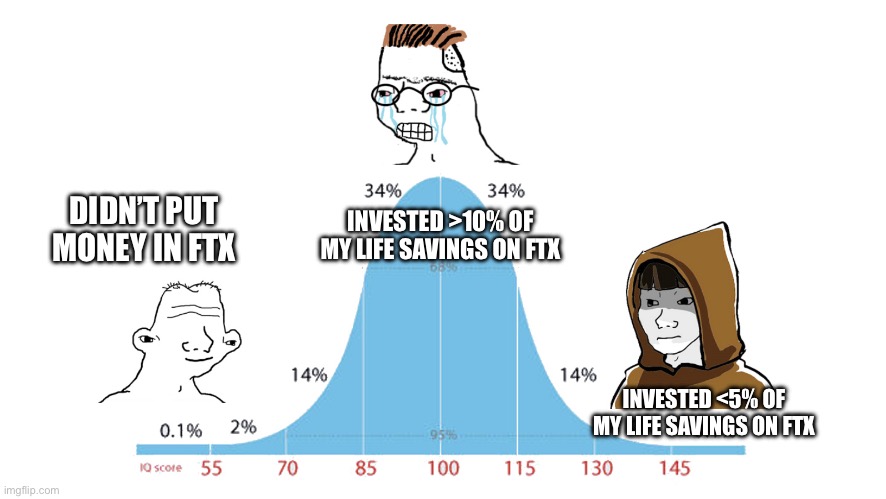Dylan Matthews has an interesting piece up in Vox, 'How effective altruism let SBF happen'. I feel very conflicted about it, as I think it contains some criticisms that are importantly correct, but then takes it in a direction I think is importantly mistaken. I'll be curious to hear others' thoughts.
Here's what I think is most right about it:
There’s still plenty we don’t know, but based on what we do know, I don’t think the problem was earning to give, or billionaire money, or longtermism per se. But the problem does lie in the culture of effective altruism... it is deeply immature and myopic, in a way that enabled Bankman-Fried and Ellison, and it desperately needs to grow up. That means emulating the kinds of practices that more mature philanthropic institutions and movements have used for centuries, and becoming much more risk-averse.
Like many youth-led movements, there's a tendency within EA to be skeptical of established institutions and ways of running things. Such skepticism is healthy in moderation, but taken to extremes can lead to things like FTX's apparent total failure of financial oversight and corporate governance. Installing SBF as a corporate "philosopher-king" turns out not to have been great for FTX, in much the same way that we might predict installing a philosopher-king as absolute dictator would not be great for a country.
I'm obviously very pro-philosophy, and think it offers important practical guidance too, but it's not a substitute for robust institutions. So here is where I feel most conflicted about the article. Because I agree we should be wary of philosopher-kings. But that's mostly just because we should be wary of "kings" (or immature dictators) in general.
So I'm not thrilled with a framing that says (as Matthews goes on to say) that "the problem is the dominance of philosophy", because I don't think philosophy tells you to install philosopher-kings. Instead, I'd say, the problem is immaturity, and lack of respect for established institutional guard-rails for good governance (i.e., bureaucracy). What EA needs to learn, IMO, is this missing respect for "established" procedures, and a culture of consulting with more senior advisers who understand how institutions work (and why).
It's important to get this diagnosis right, since there's no reason to think that replacing 30 y/o philosophers with equally young anticapitalist activists (say) would do any good here. What's needed is people with more institutional experience (which will often mean significantly older people), and a sensible division of labour between philosophy and policy, ideas and implementation.
There are parts of the article that sort of point in this direction, but then it spins away and doesn't quite articulate the problem correctly. Or so it seems to me. But again, curious to hear others' thoughts.



If one of the main motivations for effective altruism is to challenge traditional, ineffective ways of doing things, such as bureaucracy, mismanagement, passivity, and established procedures, and to differentiate itself from the world of charity and its connection to the establishment, especially in societies like the UK, then traditional institutional experience by older persons won't be enough. I would argue that a better goal would be identifying what is not working and must be worked on in relation to learning about and fighting fraud, including developing better tools to do so.
To truly go against the traditional ineffective way of doing things and create differentiation, effective altruism needs to prioritize developing new tools and approaches for addressing issues like charity fraud. This could include using coordination technologies, artificial intelligence, and knowledge networks to identify and review potential frauds, as well as working on building a community of expertsand an academic network who can help develop and implement these solutions. By focusing on innovation and tackling these challenges head-on, effective altruism can continue to set itself apart and make a real impact.
I disagree that things are coupled in this way. You can be innovative and new in some important respects (like cause selection, prioritisation, taking philosophy seriously, etc.) while being boring and traditional in others (good governance, accounting, fraud detection, trust etc.).